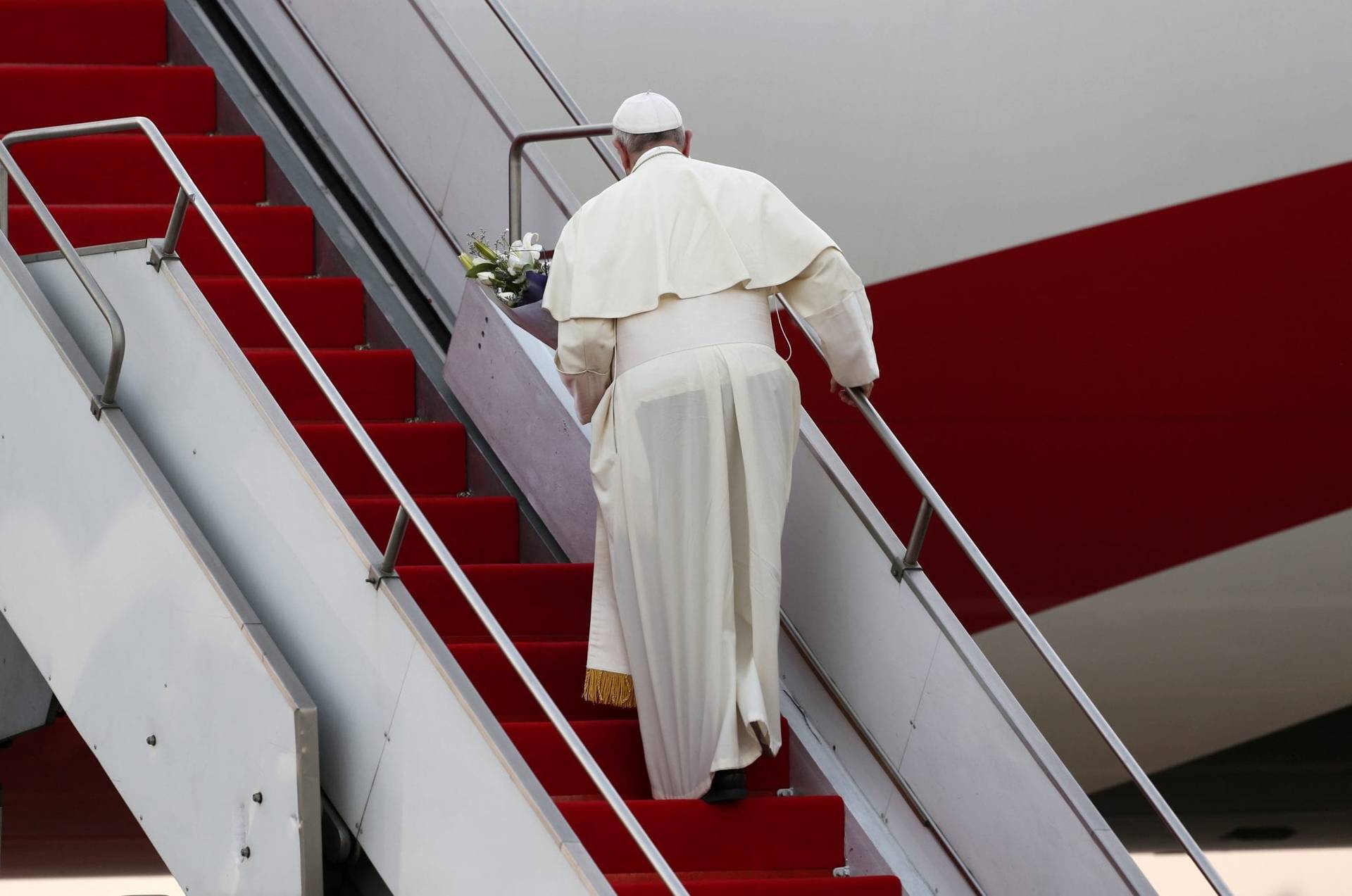YANGON, Myanmar — A Vatican spokesman on Wednesday defended Pope Francis’s decision to avoid the term “Rohingya” while on a three-day trip to Myanmar, arguing that his discretion “doesn’t take anything away” from his earlier advocacy on behalf of the persecuted Muslim minority, and also cautioning that “behind closed doors” the pontiff may have been more explicit.
Officials of the local Church, meanwhile, defended State Counselor and Nobel laureate Aung San Suu Kyi despite criticism of her own record on the Rohingya, arguing that backing Suu Kyi is the best way to continue the “democratic reform of this nation.”
The comments came during a press briefing in Yangon, Myanmar’s largest city, on Wednesday, as Francis prepares to wrap up his three-day visit and move on to neighboring Bangladesh.
The Vatican spokesman, veteran American journalist Greg Burke, told reporters the fact that Francis hasn’t used the word “Rohingya” on this trip doesn’t “take anything away” from the previous times he’s used it, including last October when Francis referred explicitly to the Rohingya crisis during a morning Mass.
Asked for a reaction to international human rights groups that have expressed disappointment, Burke said, “Everyone’s entitled to their own opinion.”
“I find it hard to believe [the pope] has lost any moral authority on this,” Burke said. “People are not expected to solve impossible problems.”
“I’m very happy that people think the pope is all-powerful, but he’s not,” Burke said, saying Francis can’t “parachute” into places such as Myanmar or the Middle East and make problems disappear.
“Nobody ever said Vatican diplomacy’s infallible,” Burke added, though insisting that in this case there are no second thoughts.
Burke also suggested that what Francis didn’t say in full public view, he may have voiced behind the scenes.
Following Vatican tradition, Burke refused to comment on the pope’s private meetings, saying that not even Francis would if asked. Yet he added: “Having said that, if you’ve watched and followed the pope, he’s a very free man.”
RELATED: In Myanmar and Bangladesh, pope’s drama comes from the dictionary
On another matter, Burke said that moving up the pope’s meeting with Myanmar’s military leader General Min Aung Hlaing and other senior officers from the end of the trip to the beginning — on Monday — was requested by the military, not Francis.
Burke said it would have been “cleaner from a protocol point of view” if the meeting had happened after the pope’s official welcome on Tuesday.
Myanmar’s civilian leader, Suu Kyi, today finds herself losing standing in the international community. The day before she met the pope, the Oxford City Council decided to revoke the “Freedom of the City” honor, in what was described as an “unprecedented step” because of her “inaction in the face of the oppression of the minority Rohingya population.”
Suu Kyi studied in Oxford between 1964 and 1967.
Yet Father Mariano Soe Naing, a spokesman for the Myanmar Catholic bishops’ conference, defended the leader, saying Suu Kyi probably would be happy to give back all her awards because: “She never asked for any of them,” Seo Naing said.
The nation’s struggle for democracy, he argued, “cannot be ignored.” Thousands died for it, Seo Naing told reporters, and he described standing strongly behind Suu Kyi as the best way to guarantee it remains standing.
Seo Naing argued said that international criticism of Suu Kyi is putting democracy at risk, because it could lead the military to say “you trusted democracy, it’s no guarantee to protect your country, to make your life better,” and the generals would take back power and say, “We’ll beat this crisis.”
“I think it is right for the Catholic Church to come in a very strong stance for her,” Seo Naing said. “Two years ago, we couldn’t have done this [press conference], we would not have been here, if it were not for the bloodshed in the streets. We need to go on with the democratic reform of this nation.”
RELATED: On the ground in Myanmar, grays loom larger than black-and-white
Sam Naeem, a Rohingya Muslim who on Wednesday had VIP access to the Mass, sided with the pope, saying that Francis not using the word didn’t change the clarity of his message.
Speaking with Crux, Naeem noted the pope’s words from the Mass, in which he called for reconciliation and avoiding retaliation and revenge.
Calling the visit an “historic moment,” Naeem said the pope is a “man of peace, the representative of Jesus Christ,” and he’s not here for political reasons: “He’s here to heal wounds, to give a message of peace, peaceful coexistence, and cease-fire.”
Naeem was less understanding with the government, saying that the fact that the pope was “blocked” from using the word is “very embarrassing” and “shameful” for Burma’s democracy. He said those happy Francis didn’t use the name are “ignorant,” highlighting that he’s used it before.
But, he insisted, “the blame should not go on the pope. He’s visiting as a guest. If you’re invited to someone’s house, and your host tells you not to do something, you don’t do it.”
Naeem also said it wasn’t the only word that the pope didn’t use because he wasn’t “allowed”: “What about our Christian brothers and sisters, who are suffering too?”
















